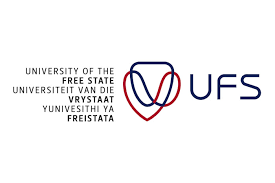International conference on Maths, Science and Technology Education held at University of the Free State
The University of the Free State (UFS) is this week (17-19 January 2023) hosting the 31st Annual Conference of the Southern African Association for Research in Mathematics, Science and Technology Education (SAARMSTE).
After two years of hosting the SAARMSTE conference virtually, it is being presented as a hybrid conference for the first time. In attendance are delegates from South Africa, Southern Africa, America, India, Australia, and Europe.
The conference theme is: Intersecting Research, Policy and Practice for a Sustainable Praxis in Mathematics, Science and Technology Education: New possibilities and directions for the post-COVID-19 Pandemic Era.
Sharing best practices and discussing common challenges
SAARMSTE President, Dr Tulsi Morar from the Nelson Mandela University, believes the conference is fertile ground for each delegate to have an opportunity to share best practices, discuss common challenges experienced during the pandemic, and celebrate how these challenges has been overcome.
It is only through our reliance and strength that we have succeeded, and because of our experiences, we can grow and innovate to be better prepared for any further challenges, he said.
Opening the event was Prof Francis Petersen, Rector and Vice-Chancellor of the UFS. He said what is to be discussed at the conference will be meaningful for the challenges the world has to solve, stating that with challenges also come possibilities.
“We live in a time of significant change in the realm of technology, which has an impact on the world of work. Graduates will need to change their thinking in the world of work. They need to understand the future world of work,” Prof Petersen stated.
He also touched on curriculum reform, saying that a critical challenge for South Africa’s education system is the decolonisation of the curriculum. What is being taught must make meaningful sense in our context. “The UFS has made significant progress in curriculum transformation since 2016,” he added.
With delegates as well as speakers from other countries present at the conference, Prof Petersen also talked about the UFS’ Global Citizens initiative. He said no country can operate in isolation. We need to learn from each other to move forward as a collective. “It is also vital to deliver global citizens,” he said.
“The importance of the SAARMSTE conference cannot be overemphasised in our current education landscape. We need sustainable relationships to be developed at conferences such as these in order to ask questions, think differently, and renew ourselves,” he concluded, stating that the role of humanities and social sciences in society is critical and that SAARMSTE can add value in this context.
Thinking indigenously about Technology education and its implementation
To contribute to robust discussions on Science, Technology, Engineering and Mathematics education, three keynote speakers will be sharing their views during the three-day conference.
Prof Dr Susanne Prediger, Director of the newly established DZLM, the German National Centre for Mathematics Teacher Education, delivered the first keynote address of the conference. She talked about Fostering students’ understanding of procedures and underlying basic concepts: Design research for mathematics classrooms and teacher professional development in the post-pandemic era.
She is of the opinion that although providing students with rich and deep mathematical learning opportunities is a common request in Mathematics education, many students are still only exposed to superficial learning. According to her, this was aggravated by the school closures during the pandemic and will continue in the post-pandemic era if Mathematics teachers are not sufficiently supported and prepared.
The second plenary will be delivered by Prof Mishack T Gumbo from the University of South Africa. He is a Research Professor of Indigenous Technology Knowledge Systems Education in the Department of Science and Technology Education. The title of his talk is: A relook into Technology Education: Raising a transformational issue, where he will focus on education, specifically the curriculum of Technology Education as a school subject.
He will show how technology, which learners learn in Technology Education, is still hooked onto the colonial perspective and how colonialism still thrives. In his plenary, Prof Gumbo will provide strategies to think indigenously about Technology Education and its implementation as such.
The third plenary will be delivered by Dr Gillian Roehrig from the University of Minnesota in the US. She is known for her research that explores issues of professional development for K-12 Science teachers, with a focus on the implementation of integrated STEM learning environments and the induction and mentoring of beginning secondary Science teachers.
Her paper, titled The Hows and Whys of Integrated STEM Education, will explore the development of a conceptual and curricular framework for integrated STEM, and the benefits of using interdisciplinary approaches to address the policy goals of preparing students as STEM-literate citizens and for the future STEM workforce.

